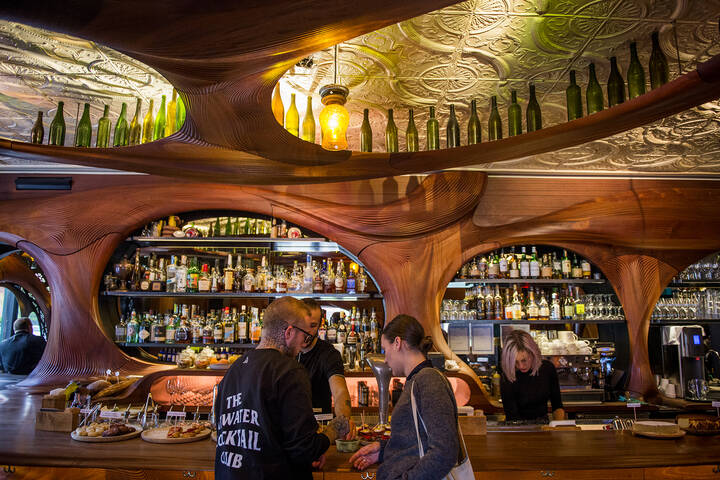
The Terroirist: Organic Wines
A look and taste at the newly available wines in Toronto
For most products, the organic foods debate is a simple one; it focuses on sustainability versus intensification, and on bulk production versus quality. For wines, the issue is not so simple. For one, the quality difference tends to swing the other way with wine than it does with other produce; while with most farmed products the organic produce is fresher, crisper, and more nutritious, when it comes to wine, virtually all of the top-flight grapes (with the notable exception of Michael Chapoutier's biodynamic signature wines) are not made organically - and so neither are the wines. As well, all drinkable wines, even those that are organic, will contain at least some sulphur, which is often a no-go for most other organic produce. This is necessary for the wine to be able to age and still keep its freshness.
Happily, some organic wines do buck this trend, including Something White this week, the Domaine Mittnacht Freres Riesling 2004 (Alsace, France, $19.95, 685339). This bright yellow-gold wine is full of apricot, floral, orange, and candycane notes as it hits your nose. In the mouth it is full, rich, and dry, with flavours of apple, apricot, and spice coming to the fore. It probably won't keep improving much, but could certainly wait for a special meal of roast chicken or a madarin salad.
While some organic wines are able to stand out and produce exceptional experiences, for the most part your value for money will lay in the standardly produced wines, often from unpopular regions in popular countries. Something Red this week, the Chateau Calissane 'Cuvee Prestige' Rouge 2002 (Aix-en-Provence, France, $19.95, 747170) demonstrates that aptly. This bright medium-cherry blend of Cabernet Sauvignon and Syrah has a heavy aroma of pepper, tar, leather, cherry, and spice. Upon supping, the body is as full as I expected based on the nose, with an unexpected vein of blueberry flavours running through it, along with pepper, spice, and tar. Drinkable now, but another two years will only make it better, this would be the ideal match for grilled lamb chops or stew.
Most people know about the difference between vintage Ports and tawny Ports (in case you don't, the former all come from one harvest and are aged primarilly in bottle, while the latter come from a range of years and are aged for decades in wooden casks), but there's another type of quality Port that many are unfamiliar with, colheita Port. A colheita Port combines aspects of both vintage - it all comes from a single harvest - and tawny - it's aged in wood - ports. Something Different this fortnight, the Manual D Pocas Colheita Port 1988 (Porto, Portugal, $29.95, 581140) is a gorgeous introduction to the catagory with its rich amber-brown robe. The aromas available to the nose are complex and multifaceted, focusing mostly on nuts, fig, caramel, and orange zest, with a slight alcoholic sparkle in the back of the nose. On the palate is it smooth and sweet, with good acidity to balance it out. The orange zest returns as the predonimant note, but is accompanied by toffee, caramel, peanuts, almonds, and walnuts. Best of all, if you don't finish the bottle, it can easily keep for a few weeks of enjoyment. Serve it after dinner with some nuts, dried fruit, and milk chocolate.
Always remember: lead with your nose.
The Terroirist is published every other Thursday
Latest Videos
Latest Videos
Join the conversation Load comments







